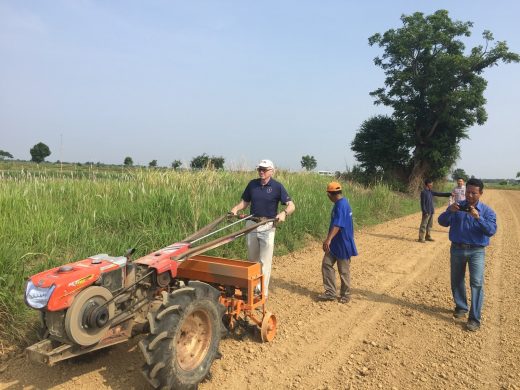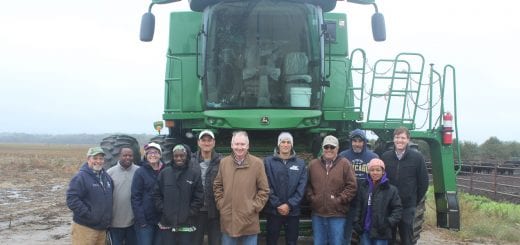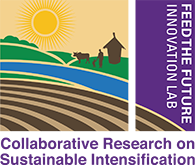Through the work of Dr. Harrigan and the Appropriate Scale Mechanization Consortium (ASMC), this video provides a look at the tools, equipment and working conditions in Burkina Faso as the ASMC partner with local farmers and artisans to develop and adapt conservation cropping systems for smallholder farmers.
Category: Uncategorized
Kansas State Universities’ kick-off to the World Food Prize
Kansas State Universities’ Sustainable Intensification Innovation Lab (SIIL) kick-off to the World Food Prize, held in Des Moines, Iowa, started Thursday October 11th. A group of international students and researches arrived in Manhattan, Kansas to begin their United States agricultural experience. SIIL is hosting the group of international guests prior to the World Food Prize. These guests come from Cambodia and Senegal, and will be participating on a panel at the World Food Prize on, Thursday October 18, where they will be discussing the role of youth engagement in food production systems and decreasing global hunger.
Continue reading “Kansas State Universities’ kick-off to the World Food Prize”
Kansas State University Innovation Lab’s Collaboration with Public and Private Sectors
Dr. Robert Bertram, Chief Scientist, USAID’s Bureau for Food Security and Dr. Vara Prasad, Director of Feed the Future Innovation Lab for Collaborative Research on Sustainable Intensification & University Distinguished Professor, discuss how Kansas State University is the host to four innovation labs. These labs allow for collaborative research in areas such as developing better sorghum varieties as well as, wheat, and post-harvest loss. Dr. Prasad speaks on the work the labs are doing in Burkino Faso, and how they are meaningful in terms of solving agricultural problems. Long term research trials are looking at how inputs are affecting the sorghum production in Burkina Faso. As the largest producer of sorghum, Kansas produces about 60% of the total U.S sorghum production. Some of the same techniques learned in Burkino Faso can be applied by producers in Kansas. Drought, disease, and insect management are major issues that affect both Kansas and Burkino Faso producers, developing alternative verities would be beneficial for both regions. Dr. Prasad also touches on the role of the wheat genomics lab and the collaborations they have created as well as the significance of post-harvest loss in developed and developing countries.
ASMC Integrates Sustainable Mechanization into Technology Parks to Engage Cambodian Youth
All around the world, youth often aim to have a better life than their parents. For those engaged in agriculture, this sentiment is particularly true. The traditional perception of agriculture is one of subsistence, meaning that farmers only produce enough food to eat, with minimal profit. The farmers’ children recognize this and want something better. Currently, trends and attitudes see youth looking to leave the laborious farming life behind for better opportunities in other sectors. “Rural youth recently reported that access to information, lack of credit and negative perceptions around farming are the leading reasons” [IFAD, 2017]. In Cambodia, migration of young rural workers away from farms has been significant in the past 15 years and threatens to cause a future labor shortage in the agriculture industry. This creates a challenge, in Cambodia and many other countries, as a new generation of farmers is needed to achieve the global challenge of feeding a growing world population.
In Cambodia, the Appropriate Scale Mechanization Consortium (ASMC) is working to change the labor-intensive perception of farming and showcase agricultural careers as an attractive option for youth. The advances in agronomy, crop science, agribusiness, agro-engineering, agro-processing and agricultural education, agriculture has evolved into an expansive and exciting field in recent decades. An agriculture-centered life has taken on new meaning, and there is a need to expose youth to the vast opportunities available within the field.




